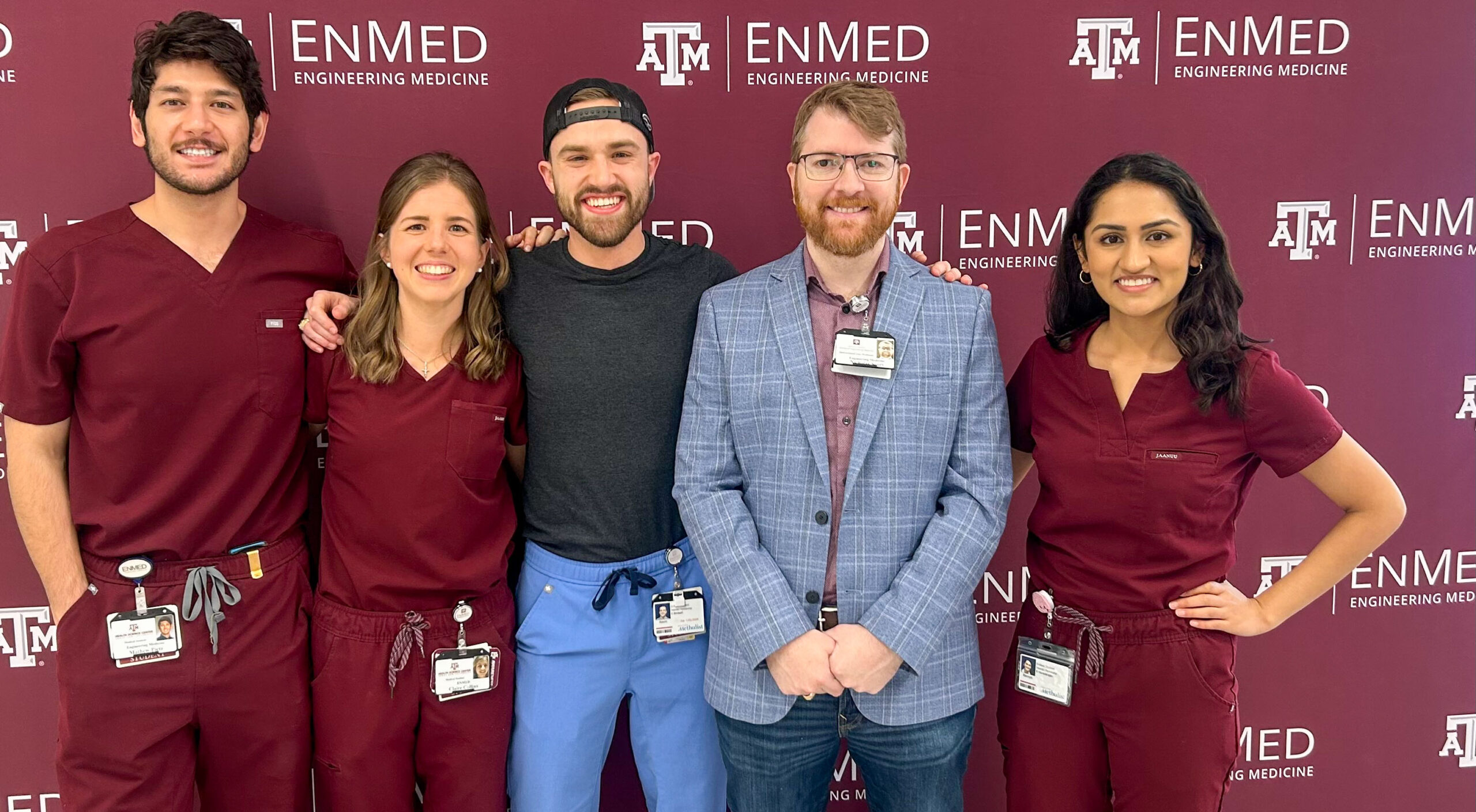
Go Baby Go Team: Mathew Pietz, Claire Collins, Kevin Birdsall, Dr. Nick Sears, and Ramya Varadarajan
The second annual Go Baby Go event took place on Saturday, Feb. 18, where six children were greeted with their own, custom-made electric vehicles built by students from Texas A&M School of Engineering Medicine and Texas Woman’s University (TWU) School of Occupational Therapy.
Go Baby Go is a nationwide initiative designed specifically for children with cognitive and mobility disorders and introduced to the School of Engineering Medicine by M3 students Kevin Birdsall, Mathew Pietz, Ramya Varadarajan, and M2 student Claire Collins. For nearly 100 hours over the course of six months, the Go Baby Go executive team worked regularly with occupational therapy (OT) students at TWU to determine the best route of care and fit for designing children’s electric vehicles.
The six children that participated in the event were recruited and treated by OT students at TWU. While OT students assessed the needs of each child, EnMed students designed and modified children’s electric rides to the right fit for the child, meeting their exact needs. Students prepped and prepared for months to organize a successful event that left each child ecstatic about their brand-new car.
Leading up to the day of the event, the executive student team held multiple brainstorming meetings and a “build day” to design mock-up vehicles, create manuals and outlines accustomed to different children and cars, and modify the vehicles themselves to make sure the baby goes. On the day of the event, the physicianeers that volunteered would follow the manual to build the car that the child will ride home in. EnMed students and their OT student partners assessed the appropriateness of the car, and depending on the child’s level of comfort, physicianeers would modify the vehicle or add on accessories to make it the perfect fit.
Go Baby Go is not only an initiative to help develop the cognitive mobility of children with disabilities but restore a sense of normalcy between the children and their families. At a national level, the initiative has shown to improve the learning and cognition of the children, helping them develop. These custom-built cars help restore function; children will not need to be dependent on others and can learn to move on their own.
Birdsall, the lead of Go Baby Go, shared that “As a kid, I remember loving getting to run and play with friends and other kids, and these children weren’t able to do that. Go Baby Go gives them that independent mobility and normal childhood that we all know and loved.” The disabled pediatric community is one that is near and dear to Birdsall and what drove his ambition to participate in it during his undergraduate career, and now at the School of Engineering Medicine.
From granting children a little bit of happiness to giving parents an ease of mind, Go Baby Go is one of EnMed’s most anticipated days of the year. In the words of Birdsall, “There is nothing like it.”